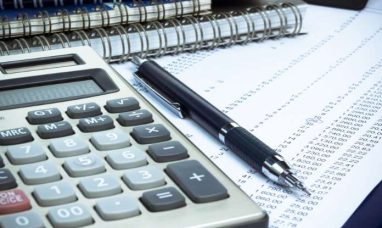- Tens of thousands of RBC FHSAs opened by Canadians since RBC launch in April
- The most common investments currently are ETFs and stocks, with mutual funds and a variety of GICs also available among investing options
- More than one-quarter of RBC FHSA holders have already contributed all or most of the $8,000 maximum annual amount
TORONTO, Aug. 3, 2023 /CNW/ – Canadians are jumping at the chance to save and invest tax-free for their first home through the new FHSA (First Home Savings Account), according to the most recent data from RBC.
“We’re seeing amazing interest in this new tax-free account, particularly among younger Canadians who are building a down payment for their first home,” said Flora Do, vice president, Investments Transformation & Client Segments, Personal Banking & Investments, RBC. “Since our April launch, tens of thousands of RBC FHSAs have been opened by Canadians – phenomenal early uptake of this innovative way to save and invest for a first home.”
Available through RBC Direct Investing and RBC InvestEase, RBC FHSAs can be opened digitally through either of these online investment services and through RBC Online Banking. Financial advisors at any RBC branch are also available to help clients learn more about the RBC FHSA, including how it compares to other investment options available to support them on their home buying journey.
In addition, RBC is helping future home buyers understand the wide range of investments they can hold within their RBC FHSA:
- Through RBC Direct Investing, as self-directed investors, clients can invest in stocks, ETFs (Exchange-Traded Funds), mutual funds, GICs, options and bonds
- Through RBC InvestEase, a professional team of Portfolio Advisors will select, buy and manage a portfolio of ETFs on a client’s behalf, aligned to their goals, objectives and risk tolerance
The maximum yearly contribution is $8,000. However, contribution room only starts to accumulate after an FHSA has been opened. Also, unused contribution room only carries forward to the next calendar year.
More than one-quarter (26%) of RBC FHSA holders have already contributed all or most of the $8,000 maximum annual amount and the same percentage are contributing regularly using Pre-Authorized Contributions (PACs).
“It’s wonderful to see Canadians seizing the opportunity to open and contribute to FHSAs right away, so they can bring their dream of home ownership closer to reality and also take advantage of the tax deduction before the end of the 2023 calendar year,” noted Do.
“Making regular contributions through PACs has an added benefit too: It helps prepare you for monthly or bi-monthly mortgage payments, after you buy your home.”
To check out RBC FHSA options, more information is available at www.rbc.com/firsthome or by visiting any RBC branch to have a conversation with an advisor.
- The majority (56%) of RBC FHSAs are held by clients aged 25 to 34; 20% of FHSA holders are aged 35 to 44; 18% are aged 18 to 24; and 6% are aged 45+
- More than one-quarter (26%) are contributing regularly to their RBC FHSAs, using PACs – giving themselves a head start on saving and investing to build their down payment
- More than one-quarter (26%) of RBC FHSA holders who have already contributed all or most of the annual maximum amount of $8,000 are taking the biggest advantage of the available tax deduction for the 2023 calendar year
- As of June 30, just over 5% of RBC FHSA account holders have already made qualifying tax-free withdrawals for their down payment and will also benefit from the available tax deduction for the 2023 calendar year – demonstrating how RBC FHSAs are helping Canadians with their short-term as well as their long-term goals
- To date, the most common securities being held in RBC FHSAs are ETFs and stocks. Mutual funds are now also available as an investing option as of June 23, 2023 – in addition to a variety of GICs – through RBC Direct Investing
- Canadians with FHSAs who don’t pursue home ownership can use their FHSA funds for their eventual retirement. They can transfer their FHSA funds tax-free into their RRSP (Registered Retirement Savings Plan) or RRIF (Registered Retirement Income Fund), with no impact on their contribution limits to those accounts
RBC’s investment options and advice for Canadians interested in FHSAs
RBC is proud to offer a comprehensive suite of investment services to help you achieve your goals. Whether you want to be hands-on, hands-off, or somewhere in-between, you can choose how you want to work with us to grow your investments. Best of all, our investment services are not mutually exclusive, which means you can choose to take advantage of several of our investment services for your different life goals. Below are the investment options we offer.
RBC Direct Investing: A self-managed, easy to use digital investing platform that enables you to trade when and how you want. You have access to outstanding investor resources, including advanced trading tools, research from experts and free real-time market data to support your investment decisions. Learning resources such as the Investor’s Toolkit help you build skills, knowledge and confidence. You can make investments online, or through the RBC Mobile app, during regular and extended hours, with Investment Services Representatives available to answer your questions and assist with account management. Our products include stocks, ETFs, options, mutual funds, bonds and GICs. In addition to FHSA, we offer TFSA, RRSP, RRIF, RESP, non-registered investments (cash and margin) and non-personal accounts.
RBC InvestEase: A low-cost, low-effort digital service that makes investing simple and stress-free, powered by smart technology and backed by professional advisors. You answer a few simple questions online and get matched to an ETF portfolio aligned to your goals, objectives, and risk tolerance. You can also choose between a Standard portfolio or a Responsible Investing portfolio, which incorporates Environmental, Social, and Governance (ESG) factors. A professional team of Portfolio Advisors will then select, buy and manage your investments on your behalf. There is no minimum to open an account and your money gets invested once your balance reaches $100. For answers to your questions and personalized advice, you can reach our Portfolio Advisors by phone or e-mail. RBC InvestEase currently offers FHSA, TFSA, RRSP and non-registered investment accounts.
Advice through Branch and Advice Centre advisors: Providing one-on-one advice virtually, by phone or in-person, powered by MyAdvisor. Our advisors provide personalized advice to support you in making decisions about your investments and your finances. They use MyAdvisor – RBC’s interactive digital advice platform – to work with you to understand your goals and develop recommendations to help you achieve those goals. You can access our advice in person, virtually or by phone, to help you determine which investment approach is best for your FHSA.
For more information, please check out
www.rbc.com/firsthome
or visit any RBC branch to speak with an advisor.
- First-time home buyer as defined for FHSA: Neither the account holder nor their spouse/common-law partner have owned a home in which they lived in the current calendar year the account is opened or in the four previous calendar years
- To be eligible, you must be at least 18 years old (age of majority in province/territory of residence) and a resident of Canada with a Social Insurance Number
- Contribution room starts to accumulate only after an FHSA has been opened
- Unused contribution room can be carried forward to the following year
- Annual contribution limit is $8,000 per individual FHSA – and contributions are not tied to income
- The lifetime maximum contribution is $40,000 – but any gains made through investments within an FHSA can also be used toward a qualifying home purchase
- FHSA funds can be combined with RRSP’s Home Buyer’s Plan (HBP) savings, to put toward the purchase of a qualifying home
- FHSA must be used to buy a home by Dec. 31 of the 15th anniversary of the account opening, or by Dec. 31 of the year the owner turns 71 – or if not used to buy a home, funds can be transferred tax-free to an RRSP or a RRIF – to not be subject to tax/to remain tax-free
- For additional information, please check the Canada Revenue Agency’s FHSA website: https://www.canada.ca/en/revenue-agency/services/tax/individuals/topics/first-home-savings-account.html
About RBC
Royal Bank of Canada is a global financial institution with a purpose-driven, principles-led approach to delivering leading performance. Our success comes from the 98,000+ employees who leverage their imaginations and insights to bring our vision, values and strategy to life so we can help our clients thrive and communities prosper. As Canada’s biggest bank and one of the largest in the world, based on market capitalization, we have a diversified business model with a focus on innovation and providing exceptional experiences to our 17 million clients in Canada, the U.S. and 27 other countries. Learn more at rbc.com.
We are proud to support a broad range of community initiatives through donations, community investments and employee volunteer activities. See how at rbc.com/community-social-impact.
SOURCE RBC Royal Bank

Featured image: Megapixl © Wrangler










